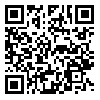Volume 24, Issue 95 (12-2024)
refahj 2024, 24(95): 229-263 |
Back to browse issues page
Download citation:
BibTeX | RIS | EndNote | Medlars | ProCite | Reference Manager | RefWorks
Send citation to:



BibTeX | RIS | EndNote | Medlars | ProCite | Reference Manager | RefWorks
Send citation to:
tajari T, Naderi M M, Javanneshan M. (2024). The Relationship between Hidden Curriculum and Sexual Violence of Married Female Students Considering the moderating Role of Emotional Intelligence. refahj. 24(95), : 6 doi:10.32598/refahj.24.95.3240.3
URL: http://refahj.uswr.ac.ir/article-1-3881-en.html
URL: http://refahj.uswr.ac.ir/article-1-3881-en.html
Abstract: (2682 Views)
Introduction: The curriculum is the main element of the higher education system and the most fundamental tool for providing students with knowledge, experience, and skills offering services to the community, and as the heart of this system, it plays an important role in achieving goals and drawing plans and goals. On the other hand, sexual violence is a type of violence that can harm women’s health. The education system can reduce the incidence of violence through a curriculum entitled altruism and humanitarian tendencies. The purpose of this study was to investigate the relationship between hidden curriculum and sexual violence of married female students in Gorgan with respect to the mediating role of emotional intelligence.
Method: This study was conducted through correlation method and the statistical population of the study included all married students studying in universities in Gorgan in the academic year 2018-2019. The sample size of this study comprised 150 people, selected by stratification. Data collection tools included Imani’s (2012) Hidden Curriculum Questionnaire (HCQ), Ghahari et al.’s (2005) Spousal Abuse Questionnaire (WAQ), and Shatte et al.’s (1998) Emotional Intelligence Scale (MSEIS). Pearson correlation coefficient and structural equation modeling were used to analyze the data.
Findings: The results showed that the model of the relationship between hidden curriculum and sexual violence with the mediating role of emotional intelligence had a good fit. Therefore, the research model appeared to have a good fit, and there was a positive and significant relationship between hidden curriculum and sexual violence with the mediating role of emotional intelligence.
Discussion: The more emotionally intelligent people were, the more they were likely to be affected by the hidden curriculum because the hidden curriculum was found to be an important and effective part of the educational process that was not easily understood, but affected various aspects of students’ education.
Method: This study was conducted through correlation method and the statistical population of the study included all married students studying in universities in Gorgan in the academic year 2018-2019. The sample size of this study comprised 150 people, selected by stratification. Data collection tools included Imani’s (2012) Hidden Curriculum Questionnaire (HCQ), Ghahari et al.’s (2005) Spousal Abuse Questionnaire (WAQ), and Shatte et al.’s (1998) Emotional Intelligence Scale (MSEIS). Pearson correlation coefficient and structural equation modeling were used to analyze the data.
Findings: The results showed that the model of the relationship between hidden curriculum and sexual violence with the mediating role of emotional intelligence had a good fit. Therefore, the research model appeared to have a good fit, and there was a positive and significant relationship between hidden curriculum and sexual violence with the mediating role of emotional intelligence.
Discussion: The more emotionally intelligent people were, the more they were likely to be affected by the hidden curriculum because the hidden curriculum was found to be an important and effective part of the educational process that was not easily understood, but affected various aspects of students’ education.
Article number: 6
Type of Study: orginal |
Received: 2021/04/25 | Accepted: 2024/11/26 | Published: 2024/12/30
Received: 2021/04/25 | Accepted: 2024/11/26 | Published: 2024/12/30
Send email to the article author
| Rights and permissions | |
 |
This work is licensed under a Creative Commons Attribution-NonCommercial 4.0 International License. |








